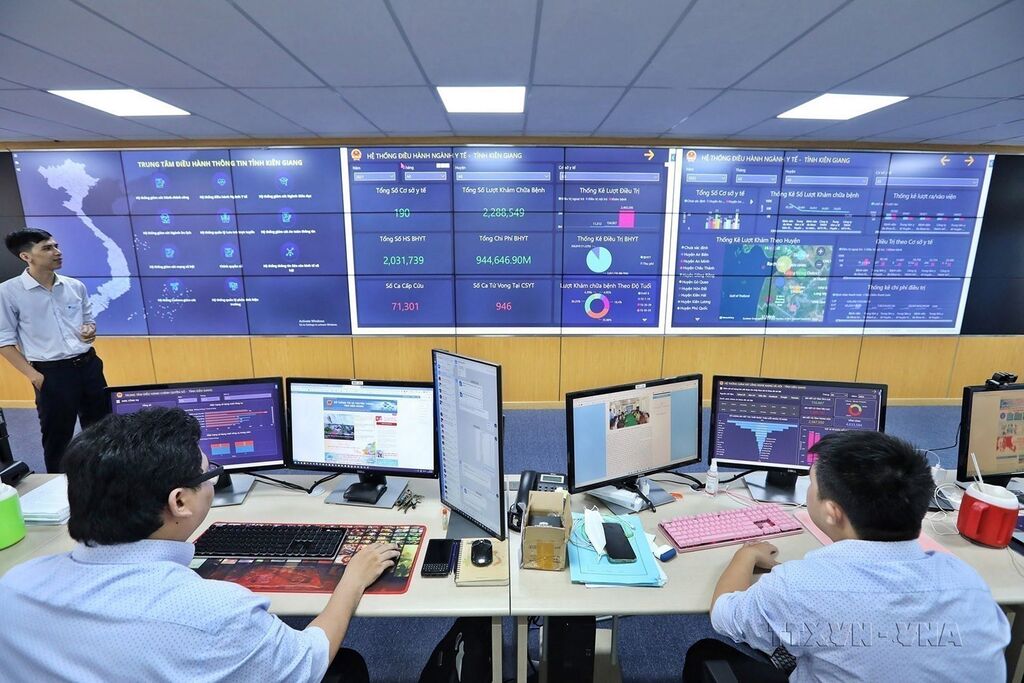 |
| An Giang province focuses on promoting Internet infrastructure to serve digital transformation in all fields__Photo: VNA |
The Ministry of Science and Technology is preparing a draft Law on Digital Transformation, aiming at completing the legal framework for nationwide digitalization and creating an interdisciplinary foundation to connect the physical and digital worlds.
The draft identifies digital transformation as a strategic breakthrough, with citizens and businesses placed at the center as both the subject and driving force. The State is expected to play a leading role in shaping institutions, guiding policies, and accelerating the process of digital transformation in a rapid, sustainable, inclusive and secure manner.
Under the draft, national resources would be prioritized for developing high-quality digital human resources, ensuring financial capacity, and mastering key technologies for digital transformation. Artificial intelligence is highlighted as a core technology to safeguard the national digital sovereignty.
To realize this vision, state budget funds and social resources would be mobilized to build and modernize digital infrastructure, with an emphasis on system safety, sustainability and environmental friendliness. Agencies within the political system would have to innovate their operations, moving toward a transparent, data-driven digital government that can deliver user-centric public services.
The digital economy is set to become a key driver of growth. The draft law outlines measures to support businesses in digital transformation, particularly small- and medium-sized enterprises, household businesses and cooperatives while fostering innovation, promoting domestic digital platforms, and creating a fair competitive environment for protection of the lawful rights and interests of consumers and workers in cyberspace.
With regard to the digital society, the draft proposes introducing digital literacy into compulsory curricula, promoting universal digital skills, and promoting lifelong learning. It further emphasizes the protection of fundamental rights for digital citizens and the development of a safe, inclusive and civilized online environment.
The state management of digital transformation would be improved to be more streamlined, effective and efficient, while international integration and cooperation would be fostered.- (VLLF)









